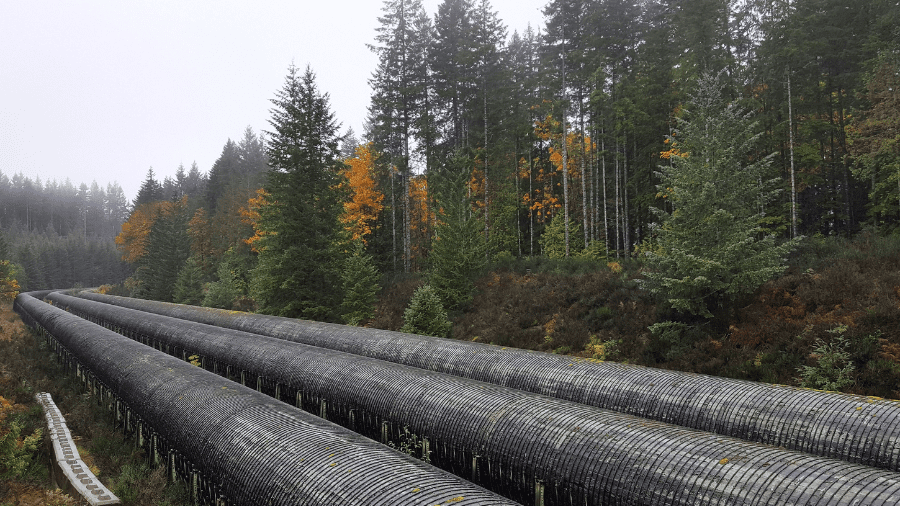This article originally appeared in the Calgary Herald.
By Heather Exner-Pirot, October 18, 2022
Last month, Enbridge announced it would be selling a 12 per cent stake in a group of seven pipelines in northern Alberta worth $1.12 billion to 23 First Nation and Métis communities. The deal represents just the latest in an underappreciated movement in Canadian politics and business: equity ownership in major energy infrastructure that is reshaping Indigenous-industry relations. How did pipelines become the leading edge of economic reconciliation?
When the Canadian Supreme Court recognized the “duty to consult” in 2004, it was a watershed moment for Indigenous rights. But it absolutely complicated the process by which major resource projects could be approved.
This affected pipelines more than any other type of project. Because they are linear, they might cross the territories of dozens of Indigenous nations, all of whom are required to be consulted and accommodated. A mine, by contrast, might only impact two or three Indigenous communities. This creates a huge vulnerability. A single, dissenting First Nation can put a linear project at risk even if dozens of others support it.
If you ever wondered why pipelines became lightning rods for environmental activism in the past decade, that’s a big part of the answer. If a group is intent on stopping the development of fossil fuels, pipelines are the weakest link, susceptible to legal challenges that can at a minimum stall and drive up the costs of a project.
This has been a major weakness for the pipeline industry, as shown by the pile of cancelled and delayed projects, from Northern Gateway and Keystone XL, to TMX and Coastal GasLink. It has been a lost decade for Canadian pipelines.
But necessity is the mother of invention. And if Indigenous rights started out as a problem for pipelines, they are now becoming a strength. The industry has developed the most sophisticated model for Indigenous equity ownership in the country, and perhaps the world.
The model was first tested with Northern Gateway, with Indigenous communities eligible for equity of up to a third of the asset before it was cancelled by the Trudeau Liberals in 2015. Similarly, TC Energy offered a consortium of First Nations up to a $1 billion equity stake in Keystone XL before that project was cancelled by the Biden administration in 2021. Trans Mountain was purchased by the federal government from Kinder Morgan in 2018 and will almost certainly be acquired by an Indigenous ownership group when it is completed, but the details are still to be worked out.
In the meantime, Suncor closed a huge deal with Fort McKay First Nation and Mikisew Cree First Nation in 2017, which saw them acquire a 49 per cent interest worth a half billion dollars in its East Tank Farm, providing proof of concept for big Indigenous equity deals.
Success for pipelines finally came with a partnership last September between Suncor and a group of eight Indigenous communities to buy a 15 per cent equity interest in the Northern Courier Pipeline, in a deal worth $1.3 billion; and then again in March of this year, when 16 First Nations signed option agreements with TC Energy to purchase up to 10 per cent equity in Coastal GasLink.
The reason that pipelines are particularly attractive for Indigenous nations is that they provide stable, predictable revenues over the lifetime of the asset. This is ideal for First Nations and Métis governments as it allows them to expand the public services they can reliably provide to their communities, from housing to land to cultural programs, reducing dependence on federal transfers.
The fact that the pipeline deals involve consortia of Indigenous partners is evidence of their clear benefits. The Enbridge deal saw the creation of a limited partnership involving 23 different Indigenous nations encompassing Cree, Dene and Métis cultures across treaties 6 and 8. As anyone involved in Indigenous politics knows, getting such a diverse group to agree to a common set of terms is a real achievement.
The model is now being applied to another linear sector: transmission lines. Ontario’s Hydro One announced last month it would offer First Nations a 50 per cent equity stake in all large-scale capital transmission line projects with a value exceeding $100 million, beginning with the Waasigan Transmission Line project announced in the spring.
The evolution of Indigenous rights in the 2000s threw the resource sector in Canada for a loop. But it also sparked creative solutions. We are now moving into an era where Indigenous peoples are not victims of resource development, but partners in it. The treaties were intended to be agreements to share the land. The resource sector is finding practical ways to honour that.
Heather Exner-Pirot is a senior fellow at the Macdonald-Laurier Institute.






